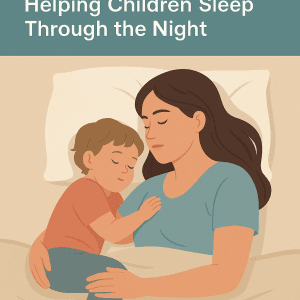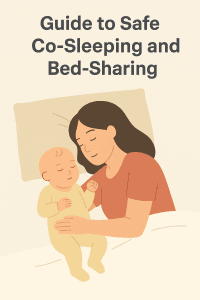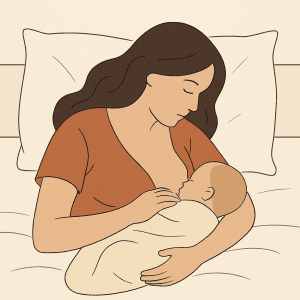Co-sleeping, where parents and children share a sleeping surface, is a common practice in many cultures. In recent years, it has also become a topic of significant debate regarding its potential benefits and drawbacks for children’s psychological well-being. Several studies have examined the effects of co-sleeping on various aspects of children’s mental health, emotional development, and family dynamics.
Evidence
- Reduced Anxiety and Improved Emotional Health:
- Children who co-sleep for more than six months exhibit lower levels of anxiety compared to those who co-sleep for shorter periods. These children also display fewer negative sucking habits, resulting in a lower incidence of malocclusions (Carrillo-Díaz et al., 2021).
- Co-sleeping has been linked to improved emotional regulation and reduced symptoms of anxiety and depression in children, suggesting that the practice may provide a sense of security and emotional stability (Barry, 2019).
- Strengthened Parent-Child Relationship:
- Co-sleeping is associated with stronger parent-child bonds. Parents report that co-sleeping provides opportunities for bonding and emotional closeness that are beneficial for children’s socioemotional development (Stewart, 2018).
- Children who co-sleep with their parents tend to show more independence and social autonomy compared to children who sleep alone, suggesting that the practice may support the development of autonomy and social skills (Keller & Goldberg, 2004).
- Improved Sleep Quality and Mental Well-Being:
- Studies show that co-sleeping children experience fewer sleep disturbances and better overall sleep quality. This improved sleep quality positively impacts their mental well-being, leading to fewer emotional and behavioral problems (Segura‐Jiménez et al., 2015).
- Conversely, solitary sleep has been associated with better parental mental health, indicating a complex interplay between co-sleeping arrangements, children’s sleep quality, and parental stress (Lee et al., 2019).
Conclusion
Co-sleeping may offer several positive effects on children’s psychological well-being, including reduced anxiety, improved emotional health, strengthened parent-child relationships, and better sleep quality. These benefits, however, are influenced by factors such as the duration of co-sleeping and cultural practices. Overall, co-sleeping appears to provide a supportive environment for children’s mental development when practiced safely and with attention to the family’s unique needs.












